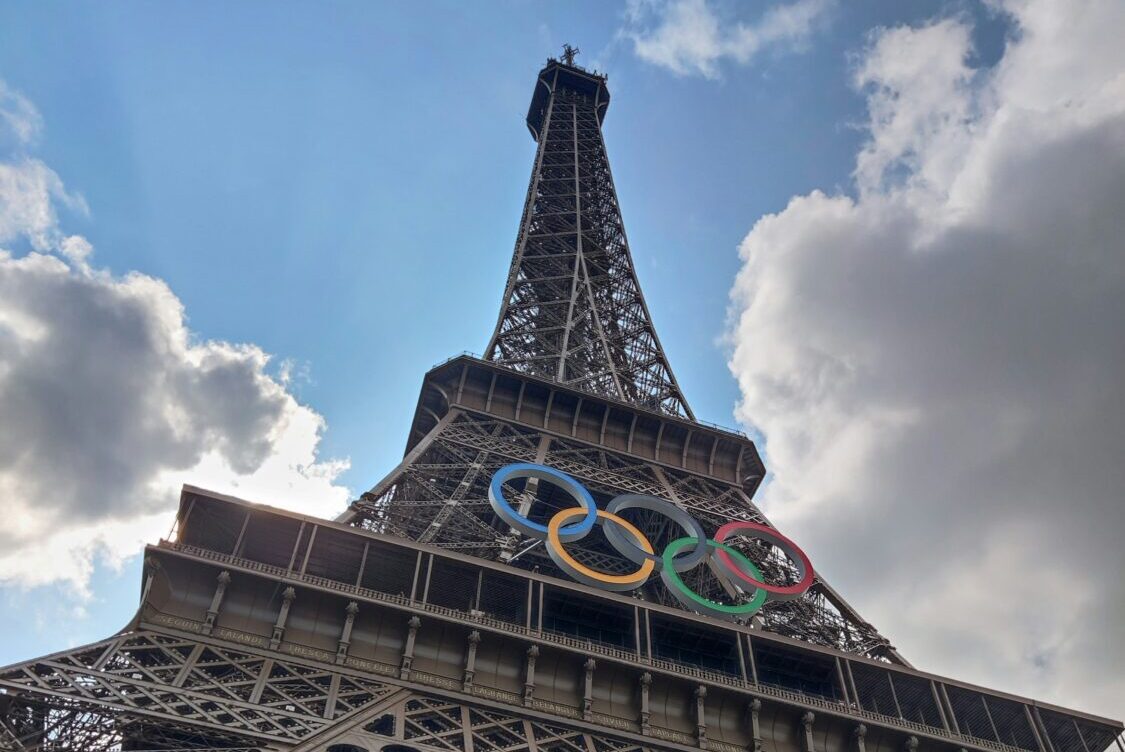Wandering through the ethereal stained glass corridors of Sainte-Chapelle, the colors bathed the ancient stone in a warm, enchanting glow. During this hour-long pilgrimage, I met Antoine, a Parisian with a contemplative gaze. “July and August, I’ll be far from Paris,” he murmured. “The Olympics … it’s not just the crowds. It’s the noise, the disruption. Paris will lose its soul for a while.”
For the government of Paris and the Macron administration, the 2024 Olympics represents a grand celebration. However, behind the tickets, tourism, construction, and sportsmanship lies a troubling reality: Many Parisian and migrant workers face systemic social and labor abuses.

To create a pristine and gentrified Parisian cityscape, the government has implemented bus networks aimed at systematically relocating and evicting squatter settlements in Paris to rural areas such as Lyon and Marseille. Among those particularly affected are the Roma, residing in the Olympic Village neighborhood of Seine-Saint-Denis, alongside many Afro-descendant and asylum-seeker communities. Although government documents from the Interior Ministry claim to encourage voluntary, internal migrations to more than 500 nationwide accommodation spots, forced evictions have surged over the past year. Paris officials have tacitly endorsed social cleansing to showcase the Olympics, often at the expense of marginalized migrant communities and the receiving towns where local residents are burdened by displaced populations. Additionally, while the constructed Olympic Village will be converted into residential areas after the games, none of the available housing is designated for the marginalized and homeless populations in Paris.
This controversial approach becomes even more alarming when one scrutinizes the expenditure allocated toward social cleansing and eviction compared to the budget for essential infrastructure improvements. Billions of euros have been funneled into gentrifying the Saint-Denis area, while comparatively meager funds are directed toward cleaning the city’s sewage system, which continues to pollute the Seine River. This pollution affects all major Olympic ceremony sites and tarnishes tourists’ impressions of the city as they encounter muddy, malodorous water.
Migrant workers involved in Olympics construction have also been heavily exploited to meet the government’s aspirations for a sparkling Paris. Official data report minimal site-related injuries and no fatalities, yet investigations and worker interviews reveal a darker truth. Many deaths and injuries have been excluded from official records, handled covertly to maintain a positive record. The government manipulates data by defining Olympic sites narrowly, excluding injuries related to secondary infrastructures such as metro lines and tourist accommodations.
Furthermore, many undocumented workers who have voluntarily come forward with union support in hopes of gaining legal status find themselves working under precarious conditions. Among them, 12 African workers reported being sent by subcontractors or temp agencies to construction sites for low wages insufficient to meet basic living standards. To evade detection during inspections, these workers rely on fake paperwork or borrowed identities and hide when authorities arrive. Those who suffer injuries on the job receive little to no compensation.
Amid growing pressure to prevent strike action, the Interior Ministry has committed to a one-time bonus of 1,900 euros for each police officer. This decision magnifies the government’s focus on appeasing law enforcement with remuneration amidst negotiations over public pay. However, this financial commitment to the police contrasts starkly with the scant attention given to housing needs. The government has neglected to invest in sustainable, affordable housing solutions for low-wage construction workers and marginalized communities throughout Paris.
The 2024 Olympics serves as a macro view of broader national issues within France. Both domestic and international media have fixated on tourism and the anticipated financial windfall from the games. Behind the glittering veneer of newly built stadiums and bustling tourist attractions lies a city grappling with its identity and integrity. As we cheer for our athletes, let us not forget the migrants who bear the brunt of this grand event and make it a reality.



